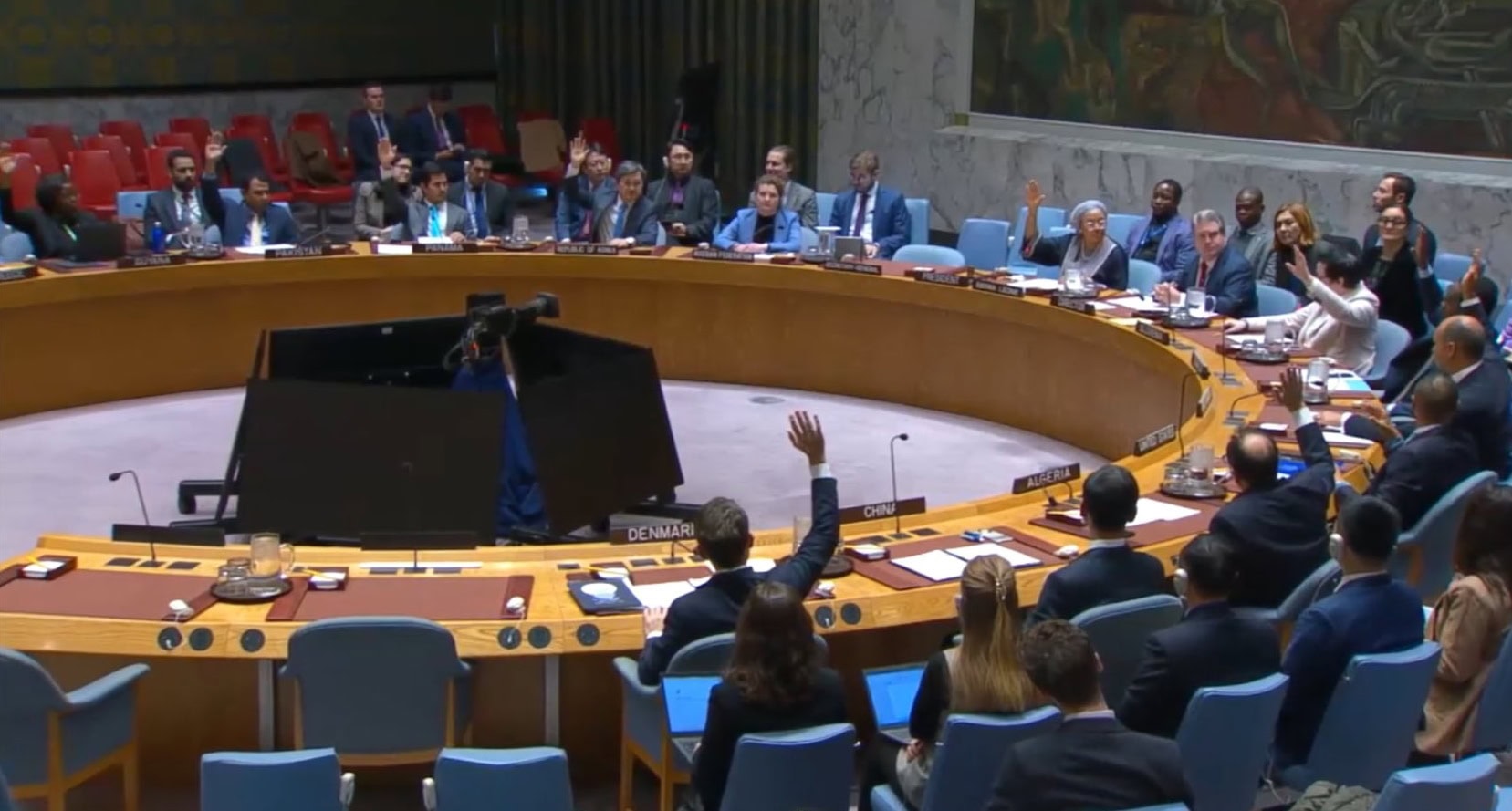
@Denmark_UN
15-11-2025 الساعة 6 مساءً بتوقيت عدن
|
|
Aden (South24 Center)
The United Nations Security Council on Thursday (November 13) extended the sanctions regime imposed on Yemen for an additional year until November 14, 2026, under Resolution 2801 (2025), which was adopted with 13 votes in favor, and abstentions from China and Russia.
The resolution maintains financial prohibitions, asset freezes, and travel bans against designated individuals and entities, while preserving the arms embargo imposed on the Houthi group under Resolution 2216. It also extends the mandate of the Sanctions Committee's Panel of Experts until December 15, 2026.
The resolution requests the Panel of Experts to submit two detailed reports by April 15, 2026: the first on the scope and impact of the Houthis' access to dual-use components and precursor chemicals, and the second on enhancing states' capabilities to prevent vessels suspected of transporting weapons or sanctioned materials from entering Yemeni ports, including an assessment of measures to curb illicit flows through high seas areas and territories under the control of the Yemeni government.
The resolution calls on member states to submit periodic reports every 60 days on their compliance with sanctions implementation. The Council emphasized the need to push Yemeni parties toward a comprehensive political process based on the Gulf Initiative and its implementation mechanism, outcomes of the National Dialogue, and relevant UN resolutions.
The resolution follows a final report by the Panel of Experts submitted on October 15, 2025, which revealed a significant expansion of the Houthi network's ties with designated terrorist armed groups including Somalia's Al-Shabaab and Al-Qaeda in the Arabian Peninsula, describing it as a "strategic shift" threatening the security of the Red Sea and the Horn of Africa.
Read more at: UN Security Council Report Details Houthis’ Deepening Alliance with Terrorist Groups
In its explanation of the vote, the United Kingdom, the resolution's sponsor, stated that "today's adoption demonstrates the Council's continued commitment to supporting peace and stability in Yemen."
A statement by British Ambassador James Kariuki noted that the new resolution "enhances the Council's ability to monitor and deter arms embargo violations and contributes to reducing the Houthis' capacity to threaten regional security and Red Sea navigation, without harming the humanitarian situation."
He added that the UK supports refining the sanctions regime to reflect the complexity of Houthi financing and smuggling networks, recommending stronger coordination among sanctions committees for Yemen, Sudan, and armed groups in Somalia.
No official statement was published by the U.S. delegation during the voting session, though previous remarks by the U.S. mission to the UN confirmed Washington's support for tightening mechanisms to monitor arms smuggling to the Houthis.
China, which abstained, expressed "substantial reservations" regarding certain provisions related to "maritime interdiction and inspection," considering the criteria in the text "unclear" and potentially "infringing upon states' exclusive jurisdiction over their vessels."
The Chinese representative stated that such measures "contain serious flaws in implementation and could be misused," impacting freedom of navigation and international trade. China called for maintaining the "neutrality and professionalism" of the Panel of Experts and urged that sanctions focus on "creating conditions for a political solution rather than provoking new confrontations."
Although the resolution is categorized as an annual renewal of the sanctions regime, the new context, particularly the Panel of Experts' report on weapons trafficking through the Horn of Africa and cooperation networks between the Houthis and extremist groups, may signify an additional step toward addressing loopholes that have undermined the embargo regime in recent years.